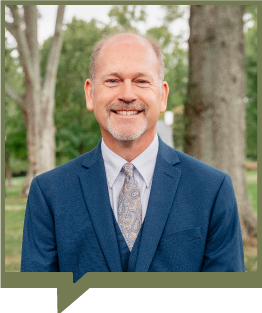Each year at Anderson University, a different verse of scripture is chosen to be the Campus Verse, serving as a spiritual anchor and guiding principle for the academic year. This year the verse is Philippians 4:8:
“Finally, brothers and sisters, whatever is true, whatever is noble, whatever is right, whatever is pure, whatever is lovely, whatever is admirable—if anything is excellent or praiseworthy – think about such things.”
Recently, I began reading Jonathan Haidt’s book The Anxious Generation: How the Great Rewiring of Childhood Is Causing an Epidemic of Mental Illness. Haidt, a social psychologist and self-professing atheist, shows how smartphones, social media, and overprotective parenting have significantly impacted the mental health of young people today. He offers insights and solutions for both young individuals and their parents to navigate these turbulent times and cultivate emotional maturity.
Haidt’s examination of the current generation of our students paints a portrait of profound anxiety. These are the students in our classrooms, living in our residence halls, competing in our athletic venues, and participating in the academic, social and spiritual extracurricular opportunities we offer. “The Anxious Generation.”
The timing of this book’s exploration alongside the context of Philippians 4:8 is striking. Paul’s message addresses the challenge of anxiety directly. He begins by urging, “Do not be anxious about anything” (v. 6). This directive is not a dismissal of the genuine struggles we face, but rather a call to a deeper response to our circumstances—one rooted in prayer and gratitude.
In prayer, we bring to God the cause of our anxiety. And prayer that is offered “with thanksgiving” expresses thanks to God for everything we have received, but especially the gift of salvation through Jesus Christ. In offering our petitions with a thankful heart, we demonstrate the surrendering of ourselves to God’s will regardless of the circumstances.
The second response to which Paul calls us addresses our thoughts. He exhorts us to “think about such things” as those listed in Philippians 4:8. The verb “think about” implies a deep, reflective engagement with what is true, noble, right, pure, lovely, and admirable. It’s not a passive contemplation, but one which allows these virtues to shape our thoughts and actions.
Earlier this year on Founder’s Day, President Whitaker examined the cardinal virtues and their role in shaping one’s education and personal development. A mind aligned with these virtues, as Paul suggests, can lead to a life that is pleasing to God. In contrast, a mind that dwells on negativity and falsehood can easily spiral into despair and dysfunction.
The challenge, then, is whether we can truly control our thoughts. Paul’s confidence suggests that it is indeed possible to choose our focus. He provides a list that encompasses fundamental qualities of goodness and wisdom, starting with truth. Just as love is the foundation for the fruit of the Spirit (cf. Galatians 5:22–23), truth is the cornerstone upon which all other virtues build. Without truth, there is no basis for what is noble, right, pure, lovely, or admirable.
The concept of absolute truth is increasingly contested in today’s society. Many argue that truth is subjective, varying from person to person. However, without the conviction that there is absolute truth—something constant and unchanging —we risk falling into a society where everyone does what is right in their own eyes.
Jesus’ declaration in John 14:6, “I am the way, the truth, and the life” provides a definitive answer to the search for truth. His resurrection serves as validation of His claim and underscores the importance of seeking and adhering to truth. Yet, it is not enough to simply know the truth; we are called to embody it, living out our response to the Gospel, and our commitment to Christ and His Church.
Interestingly, Haidt in his book references the French philosopher Blaise Pascal who wrote about “a God-shaped hole in every human heart.” Haidt, despite his atheism, says, “I believe he was right.” He agrees that there is an emptiness in us all that we strive to fill. He even goes as far as to say that “if it doesn’t get filled with something noble and elevated, modern society will quickly pump it full of garbage” (pp. 215-16). At Anderson University, our mission is not to indoctrinate, but to educate in a way that integrates faith and learning, guiding students towards the One who is “Faithful and True” (cf. Revelation 19:11).
So, as Paul concludes “Finally, brothers and sisters, whatever is true, whatever is noble, whatever is right, whatever is pure, whatever is lovely, whatever is admirable—if anything is excellent or praiseworthy – think about such things.” But this call to thought must be accompanied by action: “Put it into practice (v. 9). In doing so, we not only experience the peace of God that surpasses understanding, but we experience “the God of peace” Himself. This is what we desire for our students, and there is no greater gift we can offer an “anxious generation.”

